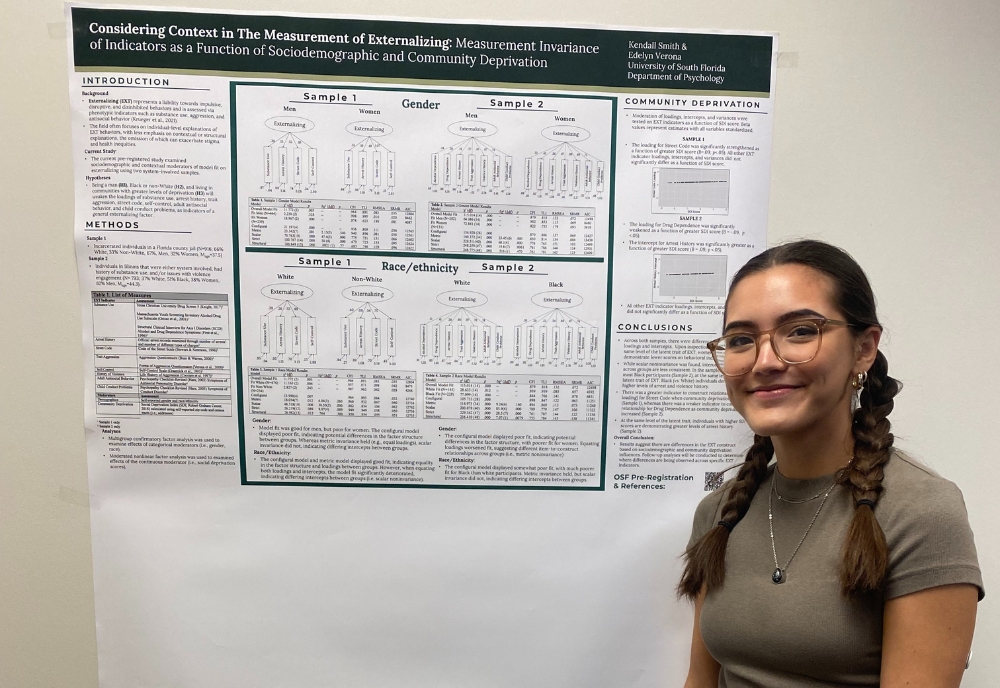USF College of Arts and Sciences doctoral student Kendall Smith is the recipient of a National Science Foundation Graduate Research Fellowship.
The fellowship will provide Smith, who is earning her PhD in clinical psychology, with a $37,000 stipend to devote time to her research.
“Time in a program that is as busy and rigorous as USF's is so crucial, so having more of financial support is huge,” she explained. “The support also is extremely helpful for disseminating findings at research conferences and other professional development opportunities. Being an NSF Graduate Research Fellow can mean a lot to others in the scientific community. I firmly believe the value of collaboration is so important when conducting research to have diverse perspectives and stronger impacts on the communities we try to reach. [It] gives me greater opportunities to access other exceptional professionals around the world to improve the quality of my work and reach lay audiences.”
She also adds that she views the fellowship as “a responsibility to contribute to the broader scientific community and to mentor others, helping to advance knowledge and create positive future impact for the field of psychology and related disciplines.”
Smith will begin her fellowship this fall working with Dr. Edelyn Verona, professor in the Department of Psychology and co-director of the Center for Justice, Research and Policy, as her advisor. She is expected to complete the fellowship in the Fall of 2029.
The aim of her research, which will be the basis for her thesis, will focus on externalizing behaviors among system-involved populations in the criminal legal system.
She wants to understand more about how contextual information may alter how individuals conceptualize the externalizing construct, which represents a liability toward disruptive, impulsive and disinhibited behaviors.
“I am interested in understanding if context such as community and systemic representations of inequity and sociodemographic variables may be biasing the extent to which current behavioral indicators of externalizing (e.g., substance use, aggression, etc.) are a true reflection of the construct and are measured differently across different levels of disadvantage,” she added.
“Dr. Edelyn Verona's experience in the field will be essential in reaching these goals through individual mentorship as well as connections with other professionals and community organizations. One way this has already happened is getting connected to Dr. Keanan Joyner, assistant professor of psychology at UC Berkeley, who has also provided support for statistical modeling in my application proposal and will serve as an additional mentor for the project.”
“Dr. Verona and criminology professor Dr. Bryanna Fox lead our lab and the Center for Justice Research and Policy (CJRP), which is a multidisciplinary organization committed to the study of crime, violence, and social justice policy,” she added. “As a student in the CJRP, I have opportunities to disseminate my research with community practitioners and policy makers and collaborate with other leaders. This way, my research can be well-informed from multiple perspectives and has greater opportunities for informing real change in affected communities.”
Smith said that as a psychology student she aims to help people and better understand human behavior.
“I've become especially passionate in conducting research that not only influences the field, but also practice and policy and positively influences the people who are negatively impacted by inequitable systems, crime, and antisocial behavior,” she added. “Pursuing a PhD in clinical psychology will and has already allowed me to further my understandings in these areas and reach these goals.”
